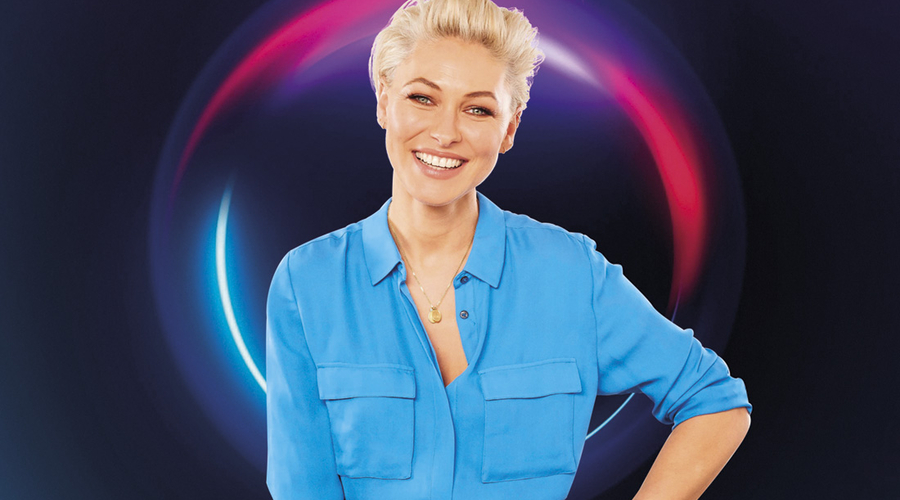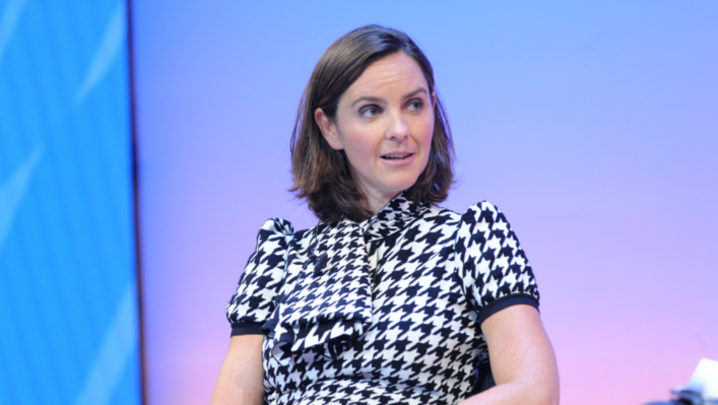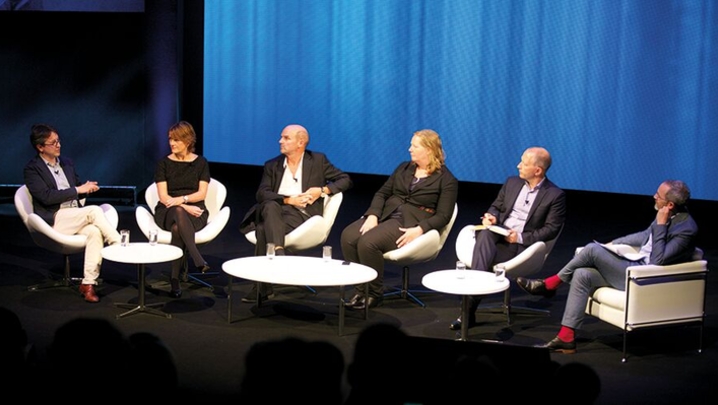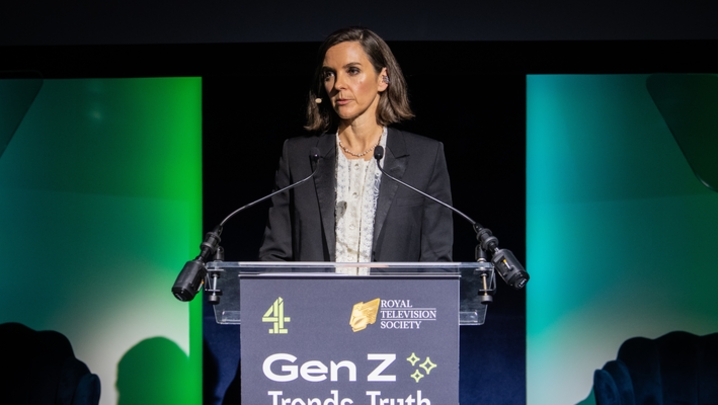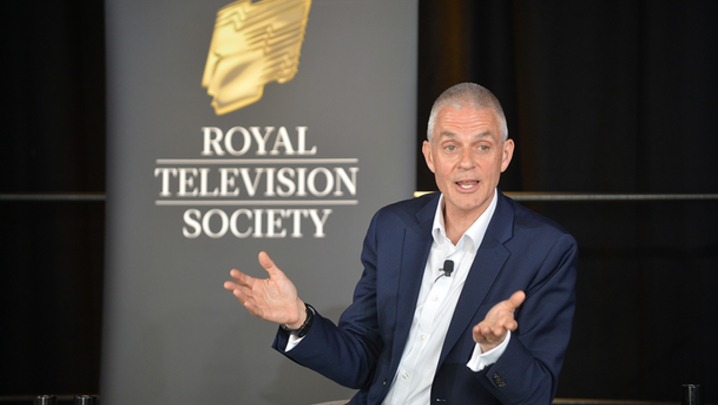Factual TV is in robust health despite the drama boom
Are we at peak unscripted content? Session chair Tim Davie noted that – while there was no short-age of good news for the genre (18 of the 20 top-performing original programmes on broadcast TV in the US that summer had been formatted entertainment) – there were worrying signs for the genre. The UK was still producing hit formats, but margins were declining and it was no longer the fastest growing market for original formats.
Davie asked each of his panellists – Channel 4 CEO Alex Mahon, Studio Lambert CEO Stephen Lambert and Tim Hinks, Co-CEO of Expectation – to say whether it was game on or game over for unscripted.
Mahon was worried that new unscripted formats were failing to gain the international traction that their predecessors had achieved. She showed two slides that, she claimed, illustrated the scale of the problem and hinted at the causes.
The first was a list of significant formats that been sold to more than 45 territories over the past five decades. The last decade was represented by just three shows, all launched in 2010: Minute To Win It (56 territories), The Money Drop (54) and The Voice (58).
But, pointed out the Channel 4 boss, the previous decade had generated double that number of blockbuster formats, all launched between 2001 and 2005: Idol (48), Deal or No Deal (83), The X Factor (46), Strictly Come Dancing (48), MasterChef (56) and Got Talent (68).
As for why recent formats seemed to be struggling, her second slide showed the relentless rise in US scripted commissions, to around 500 a year. In less than a decade, this had “doubled the amount of content in the market, driven by the online services and the SVoD streamers”.
The real question for Mahon was whether the market was simply congested thanks to “a massive rise in scripted” or was there “a reason that [unscripted formats] aren’t being invented that can go to the [previous] volume of places”?
Lambert – architect of Gogglebox, Race Across the World and The Circle – disagreed vehemently with Mahon’s diagnosis: “It takes many, many years to get to [being in 40-plus territories]… 2010 is not that long ago [and] many of the formats that have been launched since then are [growing at] exactly the same [rate as older formats]; they’re building all the time.”
He reeled off some shows that had not made it onto Mahon’s slide: “Gogglebox is now at 38 territories; Your Face Sounds Familiar is at 39; Anything Goes, a French format, is at 25; Married at First Sight, which is huge in Australia, is now at 35.” It could take 10 or 15 years “before you see the real value in a format, and how many territories will embrace it”.
Lambert conceded only that broadcasters needed to “be very brave” because it could be “a huge gamble going for these big shows”. But, even then, he noted that many shows started off small, and many people had initially doubted that MasterChef, Come Dine with Me or Gogglebox could become huge successes.
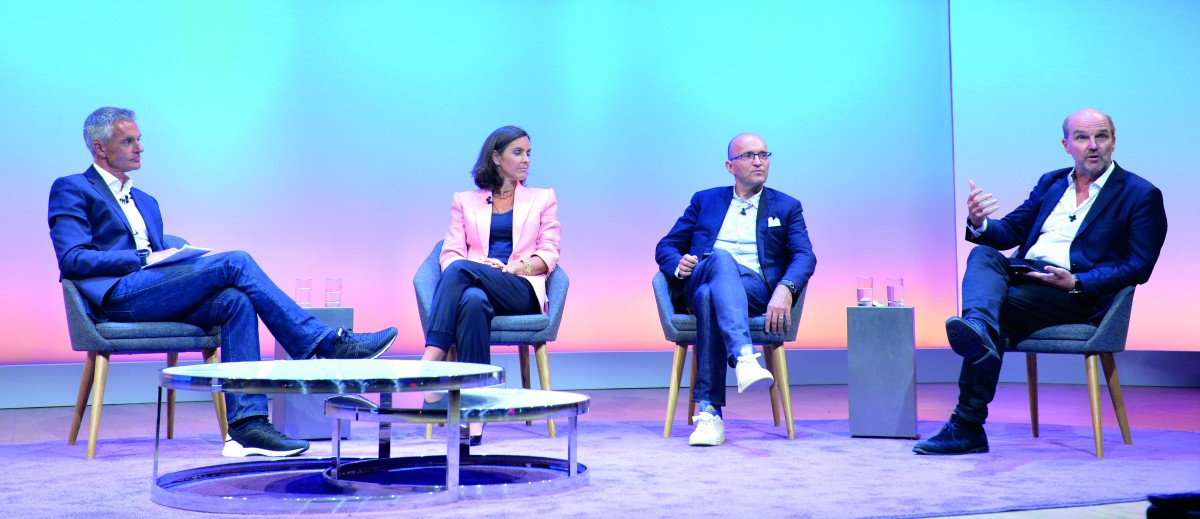
(Credit: RTS/Richard Kendal)
Expectation’s Hinks was also positive and made the point that non-scripted was “definitely the slightly embarrassing step kid to the posh world of telly and the people who run it. It always has been, despite its extraordinary business model and how it shapes the lives of the people who watch it and how it provides extraordinary drama.”
He also emphasised how “the production values, the quality and sheer scale of some [recent] scripted content now… has raised everyone’s game”. He did not believe that the money going into scripted was a zero-sum game for unscripted producers, or for viewers. Choosing between Game of Thrones and a cookery competition “would seem to be an unfair fight, but it doesn’t need to be if those things are made brilliantly”.
Mahon responded by quoting ITV director of television Kevin Lygo, who “made the point in the first session that it’s really difficult to launch new things… [it’s preferable] to nurture an existing show and make it bigger.… When we make a decision to launch something new, such as The Circle, that’s a massive bet.… The success rates for new shows across the UK market last year was [around] 30%.”
Given that “people are watching more and more video and they’re looking for innovation all the time, you have to do two difficult things at the same time – make things that capture viewers’ imagination, and work out how to market them smarter”.
Referring to the earlier Generation Z session, she added: “Attention spans are shorter – you’ve got to market on social media for something to catch fire, to become talked about.”
Lambert accepted Mahon’s point that broadcasters were under pressure to “launch less and nurture more” but maintained that it had always been “difficult to sell a show, and difficult to launch one”. Strictly Come Dancing, he reminded the audience, had been rejected by “everyone many times over” – as had Millionaire and Survivor.
Sticking to her thesis that the market for unscripted shows had shifted since about 2010, Mahon said the shows that came later had, in general, been more complicated or more expensive to make. She name checked One Born Every Minute, which “travels well, but is expensive”. On top of this, overseas broadcasters were increasingly “expanding [their] established brands… and there are fewer slots for fresh original content [that we can sell new formats into]”.
"Everyone is launching less and they're nurturing [shows] more"
Lambert responded that it had always been “difficult to get those slots… the unscripted boom of the 2000s had to push out a lot of declining sitcoms. The sitcom vanished at almost the same speed as unscripted grew; sitcoms had stopped being funny.”
So what should unscripted producers be trying to push out of today’s schedule, queried Davie? Lambert declined
to enter that minefield, noting only that established shows had tremendous inertia: “US broadcast TV is absolutely dominated in the unscripted space by very established brands. Every summer, the four networks attempt to launch a new one and pretty much every summer, 99% of them fail.”
Davie wondered if streamers could break a new unscripted show in the way that linear broadcasters had traditionally managed to do? Mahon said she saw no reason why Netflix could not be successful with a non-scripted format: “You can crack release patterns – that’s just a windowing question… for different countries on certain dates.” A bigger challenge was “to make a piece of global content that fits, and is relevant to, each country, at scale”.
Love Island, she pointed out, “is across social media all the time, and there’s a pacing and an episodic nature to it that makes you want to watch it. That’s harder to do when you’re going global.”
Netflix has not released its new hip-hop talent show Rhythm and Flow all in one go, but in batches of episodes across three weeks. “That will generate a lot of data for Netflix,” Lambert suggested. “With unscripted competition shows… part of the joy of watching them is the fact that everybody’s in sync on the conversation. The SVoDs’ strength is also their weakness – by releasing everything at once, people watch it at different times and it’s much harder to have that in-sync dialogue among the viewers.”
Lambert thought UK producers had nothing to worry about: “Due to the way in which our industry has grown up, buyers here have an extraordinary imperative to buy original ideas off paper. [This is] the opposite of many other countries – German [broadcasters] won’t buy a format until they can see the data.
“We have the amazing advantage of the English language. The goal in the format world is to create a format here and take it to America; if it works in the US, it is probably going to go everywhere. And it’s so much easier to sell an original format made here to the US because it’s in English.”
Session Three: ‘Running on empty’ featured: Tim Hincks, Co-CEO, Expectation; Stephen Lambert, CEO, Studio Lambert; and Alex Mahon, CEO, Channel 4. It was chaired by Tim Davie, CEO, BBC Studios and produced by Diana Muir. Report by Gordon Jamieson.

